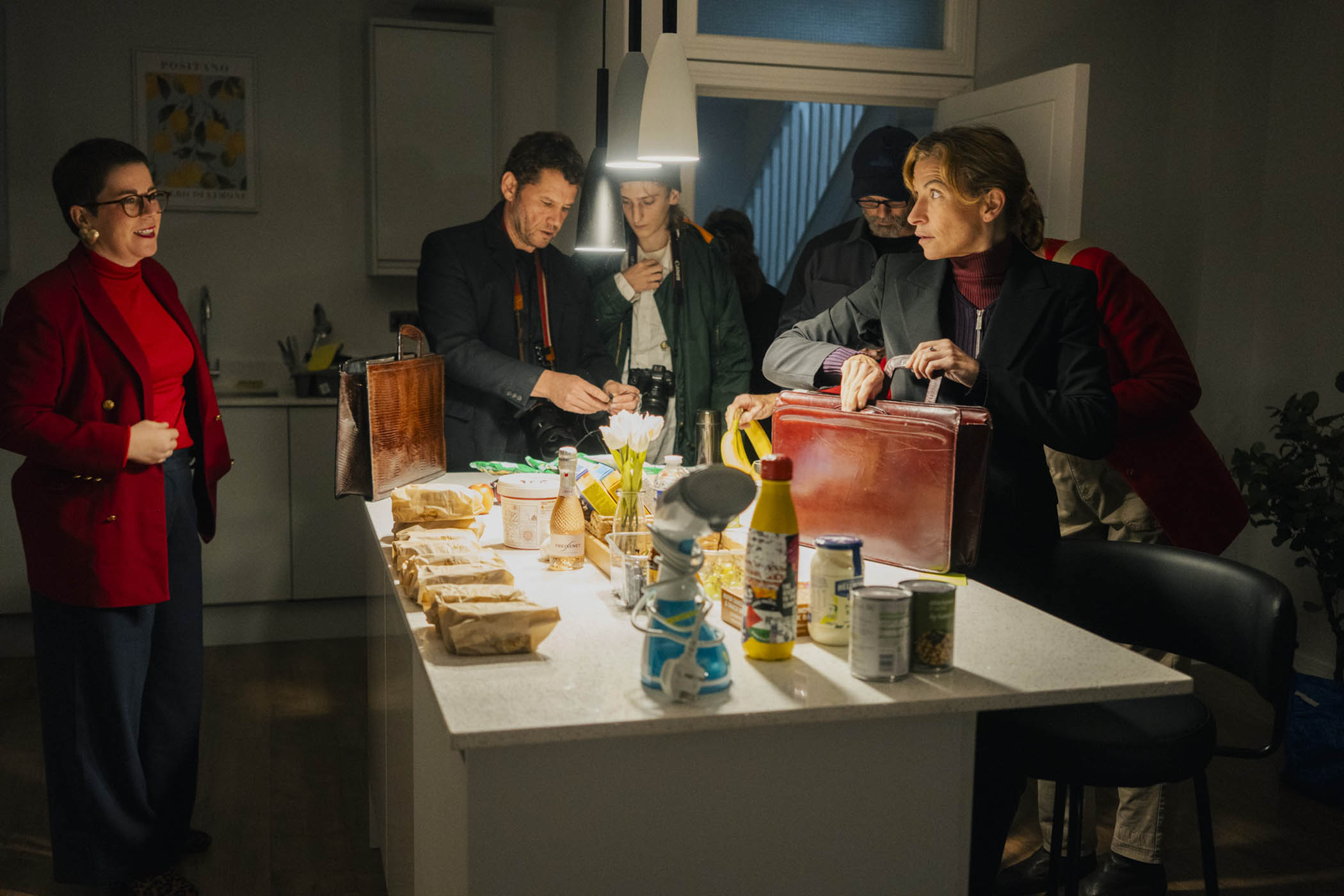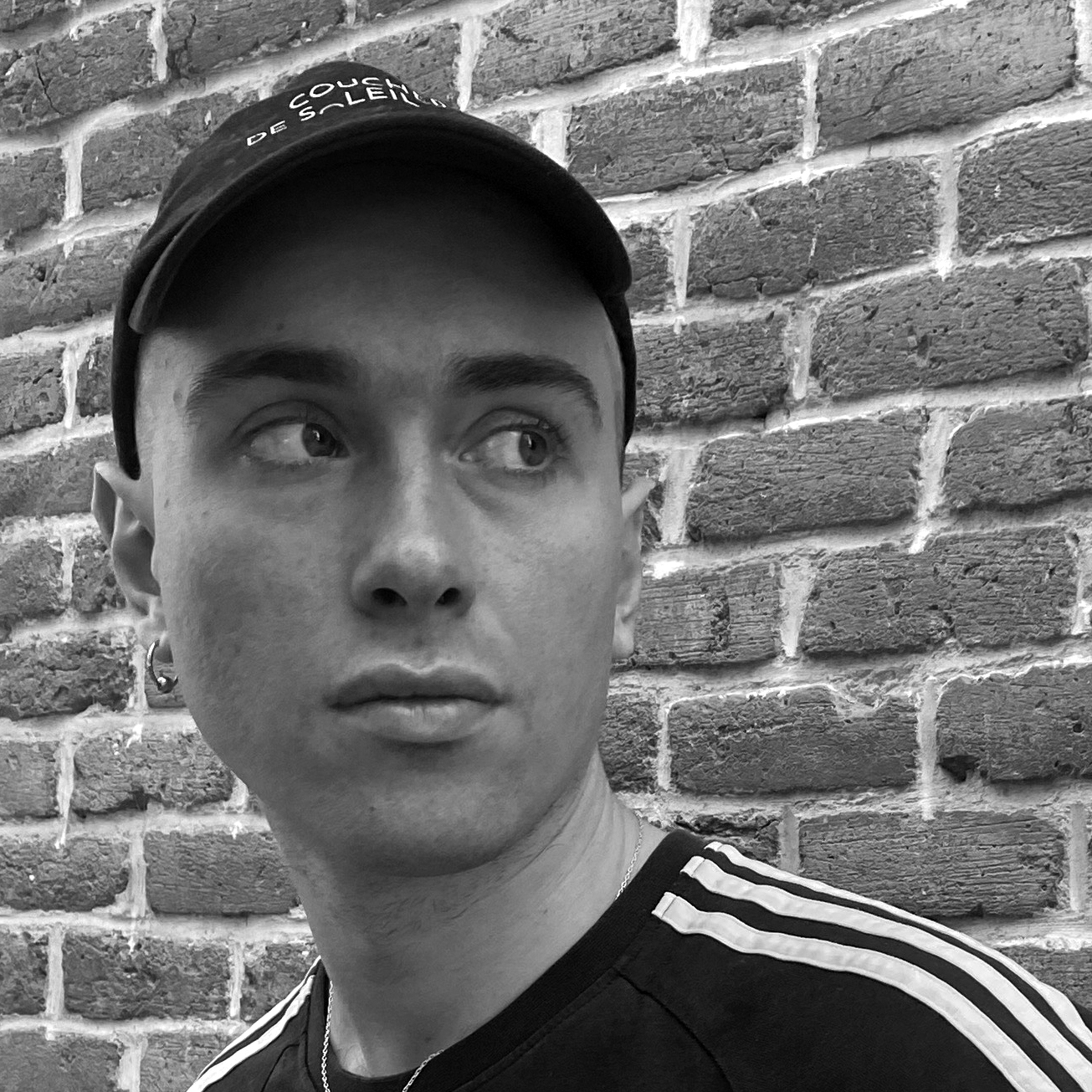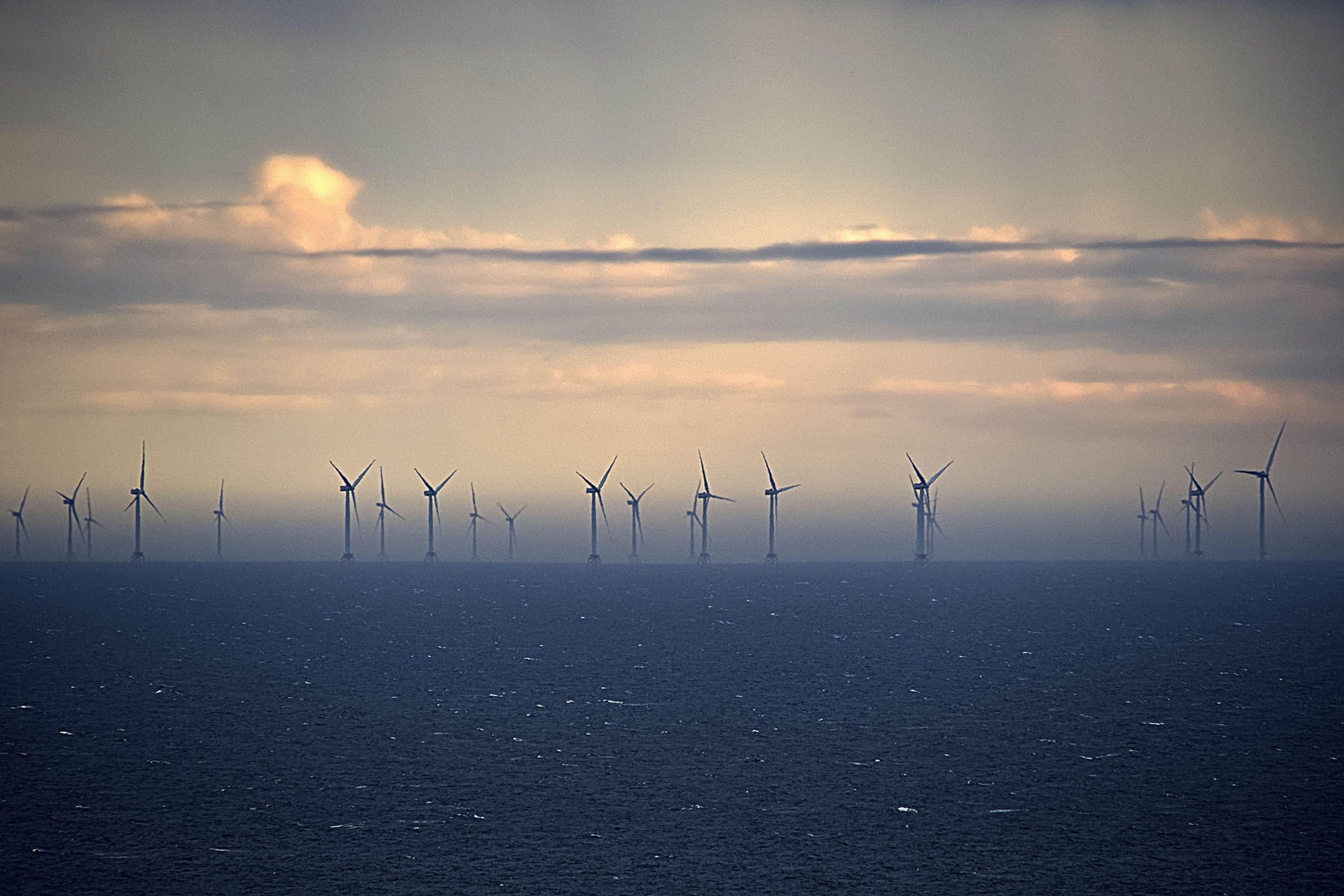Photographs by Harry Mitchell
I’m sitting in a sinister van with decidedly un-sinister people. It's 10am. We've been parked here for hours. In the silence, you can hear raindrops amplified against the metal roof. TV shows like The Wire make stake-outs look cool, with chain smoking and endless coffee. But I don't remember Jimmy McNulty yamming Graze oat flapjacks and discussing household energy saving tips or how to avoid plastic packaging. Then again, The Wire never had a series following middle-aged environmental activists.
We’re waiting for Mark Thurston, chief executive of Anglian Water, to emerge from his house in suburban London, at which point the activists will attempt to perform a citizen’s arrest for intentionally causing public nuisance.
Thurston has had the Anglian chief executive job since July 2024. This year, his company was ordered to pay £62.8m after an investigation by water regulator Ofwat found “failures in how Anglian Water has operated and maintained its sewage works”.
Thurston is on a reported annual salary of £720,000. Prior to his current role, he was chief executive of the HS2 high-speed rail network, where, for a time, he took home the biggest pay packet in the UK’s public sector.
But Thurston isn’t home. There’s a couple of pints of milk sitting unclaimed outside his door. I’m exhausted. We all are; we’ve been at this for the past two days, waking at 4:30am so that we can make the rendezvous in time to sit in this cramped people carrier. There are diapers in the boot in case nature calls at some crucial juncture.
“We have eyes on the milk,” someone mutters from the front seat.
Recently, a text came through from a contact previously close to the campaign group Just Stop Oil (JSO), offering The Observer exclusive access to a story. JSO announced back in March that it would disband. The contact told me he’s now working with a new initiative.
JSO and Insulate Britain are still contentious because of their approach to direct action. By 2023, 68% of the public were found to disapprove of JSO. A similar proportion of Britons opposed Insulate Britain in 2021. Both groups blocked traffic on motorways. Many key organisers went to jail. They’ve all been released now but some have highly restrictive parole conditions. They will tell you it was all worth it; the government has now committed not to issue licences to explore new oil and gas fields – one of JSO’s central demands.
My contact’s new group is called Citizen’s Arrest Network (CAN) and it is trying something different. CAN is not a continuation of JSO or Insulate Britain and does not have the endorsement of either group, though there is some crossover among the activists involved.
A common complaint levelled at protesters who obstruct roads is that they’re alienating the general public. “My son is 11! He needs to get to school!” yelled a woman – who became known as “Range Rover mum” – at a couple of Insulate Britain activists in 2022 before almost running them over. (Apparently, Range Rover mum later met with a spokesperson for Insulate Britain and the pair got on quite well.) That same year, Insulate Britain’s tactics were used to justify the Police, Crime, Sentencing and Courts Act, which put new restrictions on public assembly.
Instead of apprehending everyday commuters and delivery drivers, CAN focuses on interrupting the lives of powerful people and does so, arguably, without breaking the law. In the spring, it targeted oil executives; now it is going after water chief executives on the grounds of dereliction of environmental duty. This led me to the van and to an initial trip up the M11 towards the Anglian Water’s headquarters in Huntingdon, Cambridgeshire, alongside a vicar, an aspiring nut farmer and a former researcher for Unilever.
Citizen’s arrests have been used as a method of direct action before, most famously by the activist Peter Tatchell, who in 2001 attempted a citizen’s arrest of Zimbabwe’s Robert Mugabe at the Hilton in Brussels. “I am putting you under arrest on charges of torture under the United Nations convention against torture 1984,” Tatchell told Mugabe, holding out his hands to show he was unarmed. Mugabe’s security detail promptly beat him up in the lobby. Then, when he tried to obstruct Mugabe’s departing car, a bodyguard got out and knocked him unconscious.
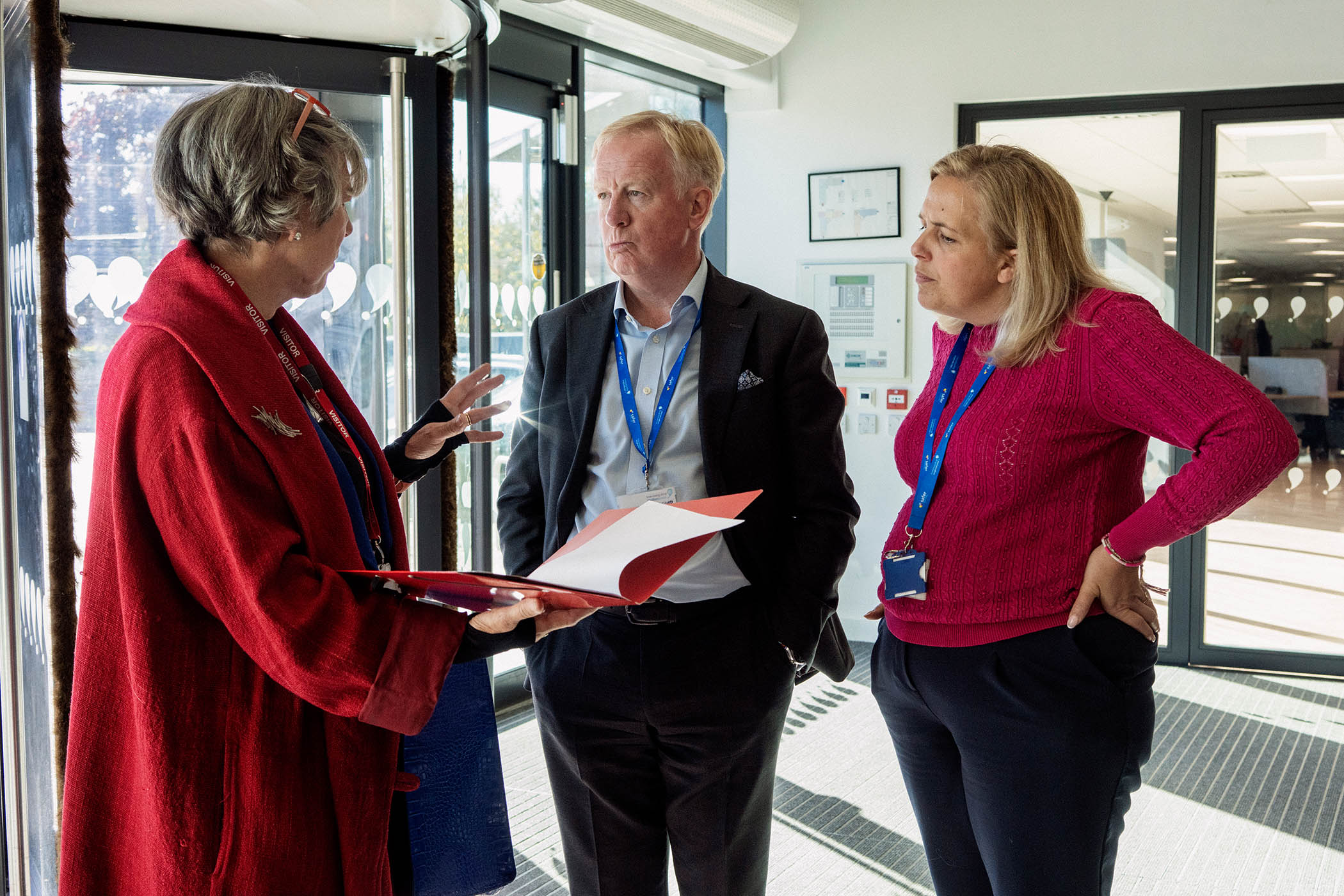
Activist Helen Burnett confronts Anglian Water boss Mark Thurston and a colleague at the company’s headquarters in Huntingdon
Whichever person is carrying out the arrest is known to CAN members as the “Erin”, after the US eco-activist Erin Brockovich, who brought a successful lawsuit against the Pacific Gas and Electric Company, an action dramatised in an Oscar-winning film starring Julia Roberts.
Today’s Erin is the Rev Helen Burnett. Her two colleagues have the tasks of moral support and calling the police. They’re all dressed smartly to make the arrest look as official as possible. To keep the temperature low, all CAN arrests are conducted by women.
Burnett is nervous. She’s been trying to steady herself and remember her lines. At times such as these, she likes to recall the words of the medieval mystic Julian of Norwich: “All shall be well, and all shall be well, and all manner of thing shall be well.”
Initially, Burnett found the quote annoying. Julian of Norwich never had to contend with an ecological polycrisis, she tells me. But now the words calm her. Burnett is keen to stress that she loves our species and wants us to survive, but also believes that, in the “massive, cosmic scheme of things”, all will indeed be well, even if the Earth shrugs us off. Conscientious people such as Burnett now find relief in imagining a post-human world.
At a service station, an organiser we’ll call Jason Brown (not his real name), who spent months in prison for his activism, tells me that CAN nearly suspended its actions after Luigi Mangione was indicted earlier this year for the murder in New York of Brian Thompson, chief executive of US health insurer UnitedHealthcare. He tells me that new recruits to CAN often ask about the group’s stance on the Mangione case, because they want no part in violence, and they are reassured that is also not any part of the aim of the group.
“I don’t know what’s in Luigi Mangione’s heart,” Brown says, “and I would never want to do anything like what he did. But if you’re talking about the underlying resentment towards the godlike powers of corporate bosses ... we all feel that.”
After Thompson was killed last December, UnitedHealthcare’s bereavement post on social media was met with more than 77,000 laughing emojis. There’s since been an outpouring of enthusiasm, money and even lust towards the now 27-year-old Mangione.
Brown doesn’t want chief executives to be afraid, but he doesn’t want them to feel comfortable either. “I just want them to look at themselves in the mirror,” he says. “We want to say to these people: ‘Look, you’re an asshole. You know what your job is ... What the fuck are you doing?’”
One of the first things you see as you approach the Anglian Water HQ is a large blue mural that reads: “Do the right thing.” As luck would have it, Thurston arrives minutes after we sign in and is immediately accosted by Burnett. “I’ve just come back from holiday,” he mutters, before retreating into his office. When he reappears, flanked by the director of corporate affairs, the activists attempt an arrest.
“I have evidence from legal advisers that there are issues surrounding your role at Anglian Water,” the Rev tells him, “and I’m placing you under citizen’s arrest. In the absence of any police officers, I’m doing this in my position as a member of the British public.” Thurston seems almost amused, then less so when he hears someone actually calling the police.
Burnett hands over a dossier of evidence and Thurston vanishes back behind lanyard-operated doors to review the charges. We wait for the police to arrive. But the police don’t arrive. Apparently, they won’t come out to an arrest such as this because it’s taking place on company property. If things were to go down in public, the operator explains, officers may act differently.

The ‘sinister van with decidedly un-sinister people’
Four years ago, Shah Haider and his wife, Alex, were swimming at Thorpe Bay in Southend, Essex, when they noticed something strange. The gulls had all gone. Then, as they neared the shore, there was this smell. It was sweet at first. Then the water went grey and thick and the sweet smell became feculent. They were swimming in shit.
The incident was reported as being caused by a “significant blockage”. Shah has since spoken to engineers who told him that, at Stock Road, Southend’s main sewage treatment plant, a well had collapsed causing the system to flood. This explanation has also been picked up by the Southend Echo. Essentially, the untreated water had nowhere to go and, to avoid it bubbling up through people’s toilets, had to be pumped into overflows. The sweet smell, they later realised, came from the detergents and soaps that bulge out before the human waste.
After getting home and showering, the Haiders contacted their local councillor, who pointed them to the regional utility company, Anglian Water. The next morning, they went for a stroll down the “Golden Mile”, the area surrounding the pleasure pier. The manhole covers had popped off. Excrement, toilet paper and wet wipes littered the ground. The beaches were closed for about two weeks after that. Shah wouldn’t go back in the sea until the gulls returned.
Anger in the community grew to such an extent that, one year later, Anglian Water’s then chief executive Peter Simpson, Thurston’s immediate predecessor, agreed to attend a bollocking at a newly established water summit. The residents gave him hell and Simpson apologised, promising Anglian Water would do better. But Shah and Alex weren’t so sure, so they set up Southend Against Sewage, a community group that now has almost 7,000 members.
Last week, Shah was eager to show me an overflow pipe that runs down the beach at Westcliff Bay. It’s easy to forget the Thames is a river in Southend; the estuary stretches on for ever like a soggy desert, then, way off in the distance, you can just about make out the light industrial infrastructure in Sheppey. This is England’s mouth.
As we make our way down the pipe, we’re hit with an overpowering sulphuric smell. Shah has no idea where it comes from. Then it dissipates – or maybe we’ve acclimatised. About halfway down, we arrive at the break where the concrete has collapsed, meaning sewage is now disgorged much higher up the beach, closer to swimmers.
“We’ve been going on at Anglian Water for years to fix this,” Shah says. “We’ve written to them, we’ve shown them photos. They said they would do something about it and they didn’t. So this year, we got the Environment Agency involved. They investigated it, and they agreed with us that, obviously, Anglian Water is not keeping to their license. They’ve failed in their duty of maintenance and care.”
In response to this article, an Anglian Water spokesperson said: “Since taking the job 15 months ago, Mark has driven performance improvement that has seen Anglian move up a rating in the Ofwat league tables, now classified ‘average’ and ahead of many others. As an engineer himself, who started life as an apprentice on the Underground, Mark has worked his way up to oversee major projects like the London Olympics. £2.4bn will be invested in environmental improvements, up three-fold from the previous period, to directly improve river health and quality, reduce spills, and leave more water in the environment – the most effective way of protecting it. Decades of underinvestment and low bills cannot be solved in a minute, but under Mark’s leadership the green shoots of improved performance are appearing.”
Though there is no proof it is connected to bad water, Shah says his friends have started coming down with gastric infections. Southend is also losing its blue flags, a certification of clean water given out by the international Foundation for Environmental Education and managed in the UK by Keep Britain Tidy. Each beach that loses a blue flag, Shah tells me, costs a seaside community about £2m in revenue. Last year, Westcliff Bay lost its flag. This year, Shah suspects two more beaches will follow. At Westcliff, an E coli test came back at roughly 8,000 colonies for every 100ml. According to the Environmental Agency, a reading of 500 colonies in coastal water is considered “minimum standard”.
Anglian says that “Regarding Southend, we will invest £100 million over this five-year period, the biggest spend in any single location.” Of the broken pipe, it argues that “the overflow itself has been surveyed and is intact and working as it is designed, but the civil structure around it is crumbling. Nonetheless, we are replacing it.”
We want to say to these people: ‘Look, you know what your job is. What are you doing?’
We want to say to these people: ‘Look, you know what your job is. What are you doing?’
E coli, says Aidan Taylor, a lecturer in microbiology at Reading University, is a species of bacteria that is not necessarily bad but can be deadly. There are different types. Some are fine and already exist in your gut, performing various helpful functions. Some want to use your gut’s resources as quickly as possible and cause diarrhoea so that they can be spread to new hosts.
Others are profoundly dangerous, such as E coli O157, often called Stec (shiga toxin-producing E coli), which in about 10% of cases shuts down your kidneys. The higher the E coli reading, the higher the chances of Stec, particularly when taken close to farms or water treatment facilities.
Shah and Alex now take it upon themselves to run E coli tests at various local water sources. A recent test at Prittle Brook, a seven-mile watercourse that runs past an Anglian Water treatment plant, had a reading of 2,000 colonies. The couple no longer drink tap water without triple-distilling it via a Wallace & Gromit-style contraption.
“I feel that everything comes from the debt crisis that’s in the water industry,” Shah says. “It’s eye-watering the amount that’s paid out in debt. There needs to be immediate restructuring.” An emergency loan recently taken by Thames Water carries a reported 9.75% annual interest rate. “You wouldn’t go down and get a mortgage at 9.75%, would you?” Shah asks.
The Haiders just want the Westcliff pipe fixed. But this apparently involves replacing the entire structure. Sometimes, Shah worries that Britain can’t do anything any more.
It is almost ironic that Britain’s waterworks have become symbolic of the nation’s decline. Joseph Bazalgette’s sewage system, built in the 1860s, was heralded as a miracle of civil engineering. In 1861, this very paper described his interconnecting tunnels as “the most extensive and wonderful work of modern times”. Anyone familiar with Victorian pumping stations will understand the pride we once took in our water networks; they’re like temples.
A week after the attempted citizen’s arrest in Huntingdon, I’m back in the people carrier, having woken at dawn, for the second day in a row, at the London Croydon Aerodrome hotel. A lot of planning and a fair bit of money – for small-scale activists – has gone into this. CAN has had to work out where Thurston lives and guess his routine, hire vans and accommodation. The plan is to catch him on the way to the station, and to arrest him in public. Everyone has to be in place long before the first train.
My fellow passengers include Jen, a single mum from Brighton, Nicky, a part-time MSc student, and Sara, a former clinical psychologist. This time, the Erin is Isabel, an artist and former JSO activist who spent a month behind bars at HMP Bronzefield in Surrey in 2022 for climbing the gantry of the M25 and blocking traffic for several hours.
Prison was a strange experience for Isabel; she remembers a woman jumping from the first-floor balcony and crumpling next to her, before being rushed to the infirmary. Isabel barely reacted and is still trying to understand why not. She is currently exhibiting a show in the Hastings Contemporary gallery informed by that weird month.
The first train arrives and departs without a chief executive and, in the quiet dawn, a conversation about fear emerges. Fear is an important part of climate activism. This fear is too much for some. Even people who care deeply about the environment don’t like to think about ecological collapse because it makes them too afraid too often. Fear has taken a toll on CAN’s volunteers. Some have suffered stress-related health issues in the past. It’s also driven a wedge between them and their friends.
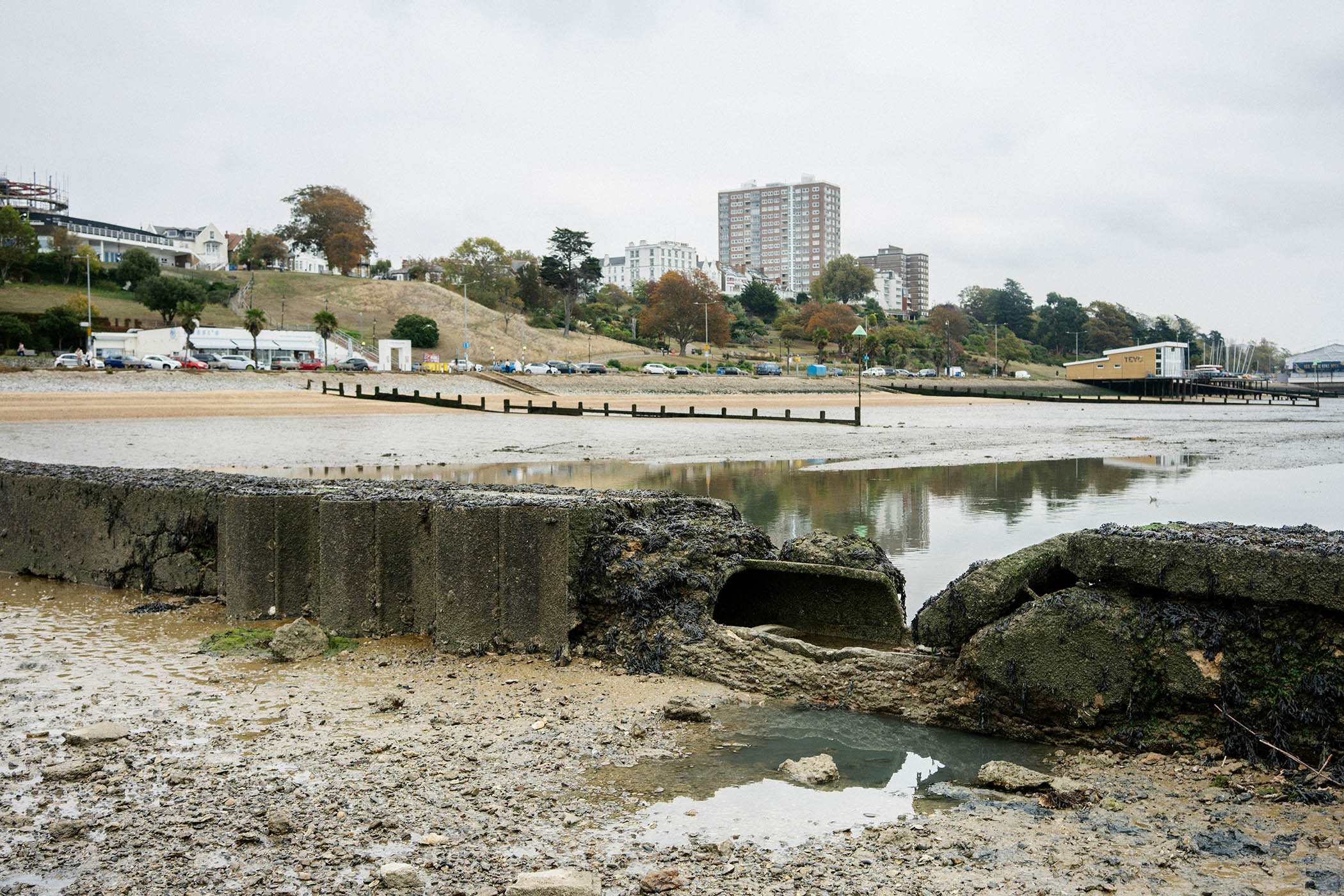
A damaged pipe maintained by Anglian Water on a beach beside a popular bathing spot in Southend-on-Sea
“It’s all-consuming,” Jen says. “Being a single parent as well, you’ve got to make sure that you don’t descend into the dark place.” Sara tells me that, in 2075, her granddaughter will be 52. By then, there may be a 3C-5C (37.4F-41F) increase in global temperatures and that one debilitatingly hot summer day will be returning between 30 and 50 times a year.
Isabel can’t believe people are just walking around doing normal things. “It’s quite hard to watch,” she says. “It gives me this sickly feeling.” Sometimes she goes to TK Maxx just to look at all the mass-produced items and leaves without buying anything. “I sort of do it to torture myself … there’s such an abundance of stuff. But if you look at the science, it’s not going to carry on like this.”
After a while, almost everyone falls asleep. I do too. Some heads nod forward, others roll back against seats. When I wake, it’s just me and the driver, who’s busy scrolling through Signal. Sights are trained firmly on Thurston’s milk.
I must admit my own dereliction of duty. After two days of fruitless waiting, I took a day off. I’m not proud of this, but I just couldn’t stand another morning jammed inside that people carrier eating hummus and margarine sandwiches, trying not to think about my cricked neck or the impending collapse of the biosphere. And besides, Thurston was probably away on business.
That night, I got a text explaining that the milk had disappeared. “It’ll be nothing,” I thought to myself. It wasn’t nothing. The next morning, they got him. It all went to plan. All except that I wasn’t there, and have to fill you in based on extensive raw footage they kindly sent over. You can also watch a snappy edit of the arrest online. It goes down like this.
Thurston is apprehended, He tries to politely carry on towards the station and is surrounded; the activists join hands around him. He’s not happy. Isabel carries out the arrest, citing her right under section 24A of the Police and Criminal Evidence Act (1984). Everyone waits for the police to arrive. “They’ve tried this before; they’re making accusations about my job. I work for a water company,” Thurston says into his phone, probably to an emergency operator. “They’re talking about crimes against the environment. They’ve not presented any evidence but they’ve got a film crew here …”
“We do have a dossier of evidence,” Isabel says, handing over a red folder. “If you want to look at it.”
“Not really,” Thurston replies. “I’ll take it but I’m not going to look at it. I need to get to work.”
Isabel tries to apologise but she’s interrupted. “No, you’re not sorry at all,” Thurston says.
“Well, unfortunately, you’ve been seriously impacting people’s lives,” she replies. “There’s a pipe at Southend which has been pumping raw sewage onto the beach.” Early morning commuters file past, mostly without a second glance.
When, after an hour of waiting, Thurston’s salvation arrives in the form of a bemused British Transport Police sergeant, the chief executive appears to try to escape into the station but finds his path blocked. Then, after much deliberation, the sergeant explains that the activists don’t have sufficient grounds to conduct an arrest and Thurston is, at long last, allowed to go to work.
As the whole incident is winding up, a man in a fleece wanders over and starts filming the scene on his phone. One of the activists asks what he thinks.
“I just think it’s great what they’re doing,” he says. Then he shrugs and walks away. After that, the sergeant leaves with the dossier, and the clip ends.
• This article has been updated since publication to include a statement from Anglian Water
Newsletters
Choose the newsletters you want to receive
View more
For information about how The Observer protects your data, read our Privacy Policy
Related articles:
